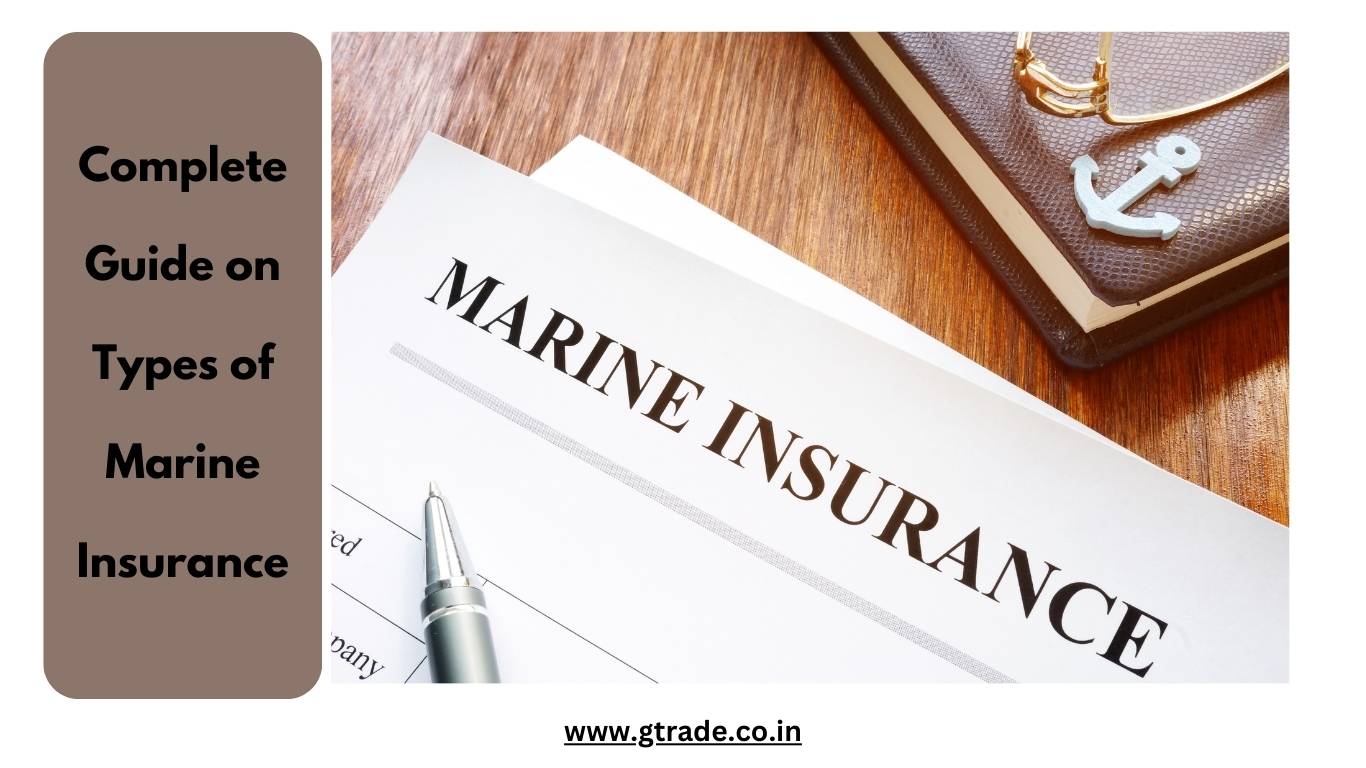Marine transportation Is exposed to higher risks compared to other modes of transport such as road, rail, and air. The perils encountered by the ship are wide and, range from weather, natural hazards, explosion, and pirate attacks. It is essential for all the parties associated with a particular ship (the shipowner, the cargo owners, the intermediaries, etc.) to avail a marine insurance policy. The Marine Insurance Act, 1963 mandates all the vessels engaged in commercial transport to have a suitable marine insurance policy to mitigate the potential risks.
Marine insurance, is broadly classified based on two factors
a) The coverage area of the insurance policy,
b)The structure of the insurance contract.
Types of marine insurance policies based coverage area
It is further sub-categorized, based on the needs and suitability of the person entering into the contract.
| marine insurance type | Description | coverage included | who should apply |
|---|---|---|---|
| Hull & machinery Insurance | Hull and Machinery Insurance, covers the loss or the damage caused to the body of the ship or machinery or any equipment in it. | covers accidents caused due to collisions, earthquakes and explosions. | owners of the ship, |
| Marine cargo insurance | covers the liability of cargo owner for damage to the cargo onboard, or during loading and unloading whille in transit. | It has extensive coverage, comes with a third-party liability, which covers the damages caused to the port, or a ship, or a railway track due to the presence of defective cargo. | cargo owners, shipper, importer |
| Liability insurance | covers the financial liability of the person who is insured | covers the death or personal injury caused to any third party traveling in the ship. | third party traveling in the ship. |
| Freight insurance | covers liability of the shipping company for the damage or loss caused to the shipment during transit | covers the merchant vessel companies from losing money because of a few unforeseen events and accidents. | shipping company or the logistics provider |
| (P&I) Protection & Indemnity Insurance | Insurance is provided by ship owners mutual insurance (P& I club)covering the liabilities to the third party. | Protection: covers risks connected with crew related claims Indemnity: covers risks related to Cargo, hull damage, environmental damage , third party vessel or property. | This insurance is provided by the P & I club |
| Freight, Demurrage and Defense (FD&D) Insurance | provides claims for handling assistance and legal costs for a wide range of disputes | covers disputes which are not covered under H&M or P&I insurance. |
Types Of Marine Insurance Policies based on structure of contract:
Voyage Policy
A voyage policy is that kind of marine insurance policy which is valid for a particular voyage. It expires when the vessel reaches its destination, irrespective of the time it takes to reach there. Usually, it is bought by small exporters who ship their goods by sea only on some occasions.
Time Policy
A marine insurance policy which is valid for a specified time period -generally valid for a year is classified as a time policy. The vessel may make any number of voyages during this period. Generally, the insurance period may vary depending on the agreement between both parties.
Mixed Policy
A marine insurance policy which offers a client the benefit of both time and voyage policy is recognized as a mixed policy. The insurance company, while issuing this policy, agrees to cover the loss or damage to the ship for a particular voyage till a particular period of time.
Open / Unvalued Policy / Floating policy
In this type policy, the value of the cargo and consignment is not valued beforehand. The valuation of the property is done only after the claim of insurance has been filed. the cargo and consignment is inspected and valued by the underwriter. However, for a successful claim, the true value of the property has to be proved by the insured by way of invoices or estimates, before the valuation.
An open policy, also called a floating policy, provides coverage for an indefinite number of transit journeys during the exsistence of the policy.
This is especially beneficial for the companies which are involved in high-volume trade, as they are saved from taking an insurance policy on each transit journey. It covers all the transit journeys of the insured until the policy is canceled or until the last of the payment is realized, whichever is earlier.
Valued Policy
A valued policy is the opposite of an open marine policy. In a valued policy, the insured property is given a specific value when the policy is issued, and before any claims are made. When the claim is made by the insured, a pre-estimated or the specified amount is given, which does not depend on the amount of loss incurred by the insured. The depreciation of the property also does not affect the amount of claim, under a valued policy
Port Risk Policy
This kind of marine insurance policy is taken out in order to ensure the safety of the ship while it is docked in a port. It provides coverage for physical damages to the vessel as well as protection and indemnity but excludes any liability arising on account of the crew and cargo.
Wager Policy
A wager policy is one where there are no fixed terms for reimbursements mentioned. If the insurance company finds the damages worth the claim then the reimbursements are provided, else there is no compensation offered. Also, it has to be noted that a wager policy is not a written insurance policy and as such is not valid in a court of law.
Single Vessel Policy
This policy is suitable for small shipowner having only one ship. It covers the risk of one vessel of the insured.
Fleet Policy
In this policy, several ships belonging to one owner are insured under the one policy. A fleet of ships belonging to single owner is insured under a Fleet policy.
Block Policy
A block policy is an all risks policy. This policy protects the cargo owner against all the risks to which the goods are exposed when they are in transit, bailment, and on the premises of the third party.
There are two popular types of block policy – furrier’s block policy, and jeweler’s block policy since fur and jewelry are two high-value commodities that are exposed to a greater threat of theft.
Summary:
Marine Insurance is an area which involves a lot of thought, straightforward and complex dealings in order to achieve the common ground of payment and receiving.
Terminologies in marine insurance:
Hull of ship : Hull is the most noticeable part of any ship. It is the watertight body of a ship or a boat that protects the cargo inside the ship from being damaged.
P&I club: A Protection and Indemnity or P&I club is a non-governmental, non-profitable mutual or cooperative association of marine insurance providers to its members which consists of ship owners, operators, charterers and seafarers under the member companies.

